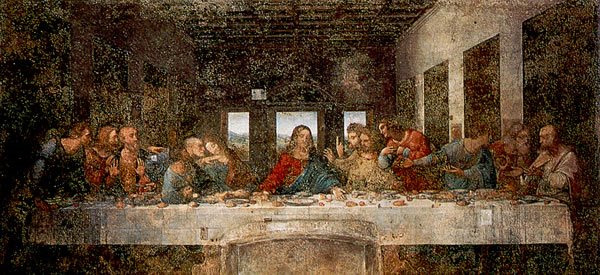"Or take the Trinity, for example. Even the best definitions end up sounding like a small child trying to play Mozart on pots and pans in the middle of the kitchen floor. The more you study the Trinity and what has been said about it over the years, the more you are left in wonder and awe about the nature of God."I remember a few years back, when I was in college, Rob Bell's book Velvet Elvis was published and the conservative evangelical community answered with angry blogs, articles, and special meetings in the caves of Colorado to discuss how one could ask such difficult and deviant questions. Of course this was in the heat of the "post-modern" discussion so most people had swords drawn, no pun intended, anyways.
My assumption is that if more conservative evangelicals would read more of Bell instead of jumping on the bandwagon against him, they might discover that he is not as controversial as most suggest. He is not perfect, his theology is not perfect, but he is humble and, from what I can observe, honestly and responsibly seeking answers. But, I digress, this blog is not dedicated to Rob Bell and perhaps I will write later concerning him in another setting.
Moving on...
I can remember when I first read the opening chapters to Velvet Elvis I was doing so under a very critical paradigm as I had been "warned" against his teachings against things like the Trinity, the Virgin Birth, etc. (even though he openly affirms both of these p. 27). As I read his work I realized a couple of things. 1.) He likes to ask questions, and 2.) He appears to be less defensive about his theology and more engaging.
To better understand his theology, one must understand how he arrives (I say arrives instead of arrived because by his own admission he holds that theology is constantly reforming leading us to constantly "arrive") at his system of approaching theological discussions. His framework (which he views doctrine and beliefs as springs on a trampoline rather than a more foundational system which builds doctrine on top of doctrine) allows for him to disconnect certain "beliefs" from the very person of God for the sake of evaluation and examination. He sees them as ways of understanding who God is. Therefore, he views the concept of Trinity as doctrine which better helps us understand God.
I think that this is the point that some people get nervous. Because Bell then proceeds to ask questions that, if your theological system is more foundational, may be difficult to process.
After explaining his "springs" theology he makes the assertion that springs are not God, but rather propositions or ideas that further explain him. I see his point of view here and have to agree in part. However, in the case of the Trinity, I tend to believe that the "spring" of the Trinity would be entirely God. Sure, the conceptual analysis of the Trinity was added as doctrine later, but it does not diminish the intrinsic value of the Trinity before the councils gathered or the creeds were formed.
Nonetheless, in the example of Bell, I will continue to seek out what the Trinity looks like and its implications in the world and in the life of the Church. This is why this blog was created, other than passing our class, Ryan and I want to struggle with how we approach our understanding of the Trinity and we invite you to do so with us.
-j


3 comments:
Sure, the conceptual analysis of the Trinity was added as doctrine later, but it does not diminish the intrinsic value of the Trinity before the councils gathered or the creeds were formed.
I think this is a very well stated point.
I'm looking forward to future posts, especially on posts that might interact with the OT in relationship to the Trinity. Mark Driscoll just preached on the Trinity this past Sunday and completely butchered the OT text for the sake of trying to shove the Trinity into Genesis 1. I like Driscoll and often defend him from critics, but I couldn't defend his anachronistic reading that actually harms arguments for the Trinity rather than bolster them.
Anyway, I think this blog is a great idea for exploring the Trinity.
http://touchstonemag.com/archives/article.php?id=20-02-028-f
This is N.T. Wright's critique of "Simply Lewis." I posted this for two reasons, one of which you, have already rendered impotent.
1. to put Wright on your blog for the sake of controversy
2. New Testament Wright engages for a paragraph or two with C.S. Lewis' essay on the Trinity.
art,
Thanks for your interaction. I had also noticed that Driscoll preached on the Trinity as part of series on doctrine. I have not had a chance to listen to it as of yet.
My next post is a short excerpt from a question and answer time concerning "Trinitarian Life"...look for that this week sometime.
The Genesis 1 issue, without actually listening to the sermon, has me intrigued. I am assuming in thinking that your issue lies with the language used to create a "plurality" within the Godhead, namely, the use of elohim.
Let me know more of your thoughts on that issue and I will listen to the sermon.
ellsworth,
Thanks for the article posting. I love, as you punned, "New Testament Wright". It's always good reading his stuff.
-j
Post a Comment